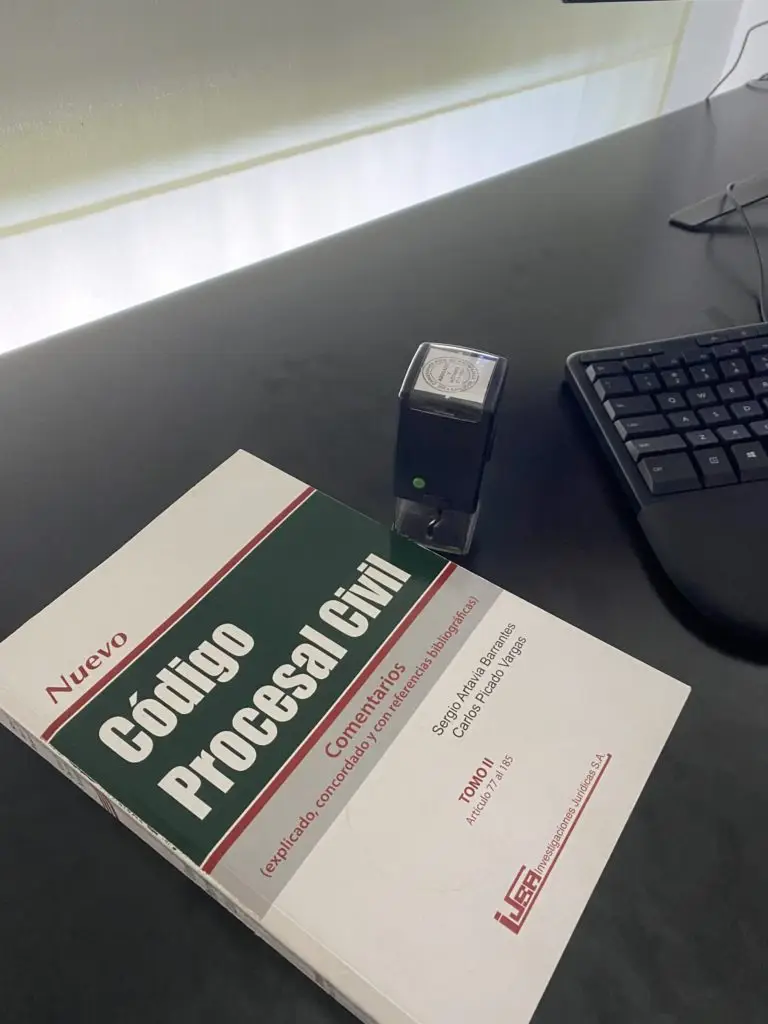Arbitration in Costa Rica. ☎️ Mediations and settlements. Law firm.
There are several methods to avoid sentencing or a trial altogether in Costa Rica. Undoubtedly, you have heard about arbitral proceedings and mediatory interventions. With this in mind, do you choose Costa Rica arbitration, or go to mediation? Are arbitrations a better route than conventional litigation? Do you know what the difference is between those concepts? Are you aware that disputes in Costa Rica can be overcome by conciliations and extrajudicial settlements? As attorneys and arbitrators, we do indeed use these methods in Costa Rica; they are alternate methods for dispute resolution. Our law firm in San José can represent you in arbitration and mediation in Costa Rica. I hope this page will offer light on these subjects.
What is the common method of conflict resolution in Costa Rica?
It´s formal litigation, with a judgment by the Judge. But judicial proceedings can take several years. So you must know that there are other ways to solve conflicts. For example, you can resolve your dispute in Costa through mediation or arbitration. You can also reach a conciliation or a transaction (an extrajudicial settlement.)

Arbitrations vs mediations in Costa Rica.
Mediations and arbitrations are alternate methods for conflict resolution. These legal instruments are specified in law number 7727, “Law for Alternate Conflict Resolutions and Social Peace.” Mediation and arbitration are similar since they both seek to resolve conflicts outside the ordinary courts. However, there are different legal alternatives for dispute resolution.

Can you define what mediation is in Costa Rica?
Mediation in Costa Rica is a way to resolve disputes. It´s obtained by the intervention of an impartial third party: the “mediator.” The mediator intervenes in the conflict per the request of both parties. For this purpose, he will meet with both parties and explore agreeable solutions to their conflict.
Mediation is a form of communication and cooperation. Specifically to avoid litigation through assisted negotiation. If the mediation is successful, an agreement is reached by both parties. The settlement agreement is final and ends the dispute. This settlement produces “material res judicata.” This means that the conflict can´t be “reopened” later, and it´s wholly terminated.

What is the definition of arbitration in Costa Rica?
Arbitration is another type of conflict resolution. Both parties must agree to the arbitration in the first place. The arbitration agreement is known as an “arbitral clause.” Arbitral clauses are usually inserted into contracts. When an arbitral clause is present, any conflict from the contract must be litigated in arbitration. Through this arbitral clause, both parties whisk jurisdiction outside the regular courts.
Just like any typical proceeding, the arbitral process begins with a lawsuit. Therefore, jurisdiction is transferred to a third party, an “arbitrator,” who directs the arbitral proceedings. Thus, arbitration in Costa Rica is a private legal process involving arbitrators instead of Judges. Nonetheless, all fundamental due process principles must be observed in arbitration proceedings.
Where does the Costa Rica arbitration process take place?
The arbitration process can be done anywhere in the country, in all provinces which are San José, Cartago, Heredia, Alajuela, Guanacaste, Puntarenas and Limón. However, you may prefer to have the arbitral dispute, to be arbitrated in a specific Arbitration Center. The only good arbitration centers are located in San José, and they provide a list of arbitrators. In addition, they coordinate simultaneously so that the process runs smoothly. To enumerate, I recommend the International Center of Conciliation and Arbitration, or “CICA.” It´s located in San José, Costa Rica. It would be best if you remember that a Costa Rican attorney is required for arbitration representation.
How is conflict resolution achieved through arbitrations in Costa Rica?
Both conflicting parties have agreed to arbitration through the arbitral agreement. Vis a vis, the dispute has been thrown outside the ordinary jurisdiction and into arbitration. The arbitration process initiates with the arbitral lawsuit, and due process principles must be observed. Without delay, the process will run its course, and the Arbitrator will make a judgment through sentencing. This decision is known as an “Arbitral Award.” The conflict is resolved through the arbitral award: it´s final and binding.
What are the legal effects of the arbitral award, and how do you enforce it?
To explain, with the arbitral award, the proceeding is over. Moreover, the arbitrator has lost his jurisdiction since the conflict is resolved and the subject matter is closed. The arbitral award is an enforceable verdict that produces “material res judicata.” As a result, the double jeopardy rule applies. Consequently, the case is permanently closed and can´t be reopened. But has social peace been achieved? How do you enforce the arbitral award? To emphasize, the arbitral awards must be executed through ordinary courts. With this intention, you must initiate an execution proceeding since the common judge has jurisdiction to enforce the arbitral award.
Is Costa Rica arbitration quick but expensive?
Yes. An arbitration proceeding is speedy because it´s a private form of justice. While an ordinary court case can take years, in comparison, an arbitral case procedure can last up to a few months only. However, arbitration can be expensive since there are arbitration center´s and arbitrators´ fees to consider.
Can the Arbitrators order precautionary measures in an arbitral process?
No. If you wish to place an embargo or a lien on properties and vehicles, this can be a problem. Furthermore, arbitrators lack jurisdiction to order any property liens or annotations. To illustrate, they can´t call embargoes over bank accounts, either. To summarize, all precautionary measures must be requested separately in the ordinary courts. That is to say that this can be a headache if not done correctly.
Can you reach an amicable solution in an arbitration?
Absolutely! I want to point out that a conciliation attempt always takes place during arbitral proceedings. You can ask the arbitrators to try to mediate the conflict, and you can even file a transaction settlement at any time. As a result, the arbitration would be resolved through another alternate method of conflict resolution (conciliation, mediation, or even a settlement).
Can you appeal the arbitral award?
No. You can´t appeal the arbitral award. First thing to remember is that the resolution is final and produces material res judicata. That is to say that the only way to challenge it is by filing a “Revision Recourse.” This feature is filed at the Supreme Court, but for legally specific reasons only, such as due process violations. By and large, this recourse is very limited, so it´s not considered an appeal. The arbitrator´s decision is binding and final.
What are conciliations and transactional settlements?
What are conciliatory settlements?
A conciliation settlement is another method for dispute resolution. To this end, you can agree to a conciliatory settlement instead of waiting for a trial sentencing. Conciliation is a formal part of any trial process. With this in mind, the Judge will invite the conflicting parties to resolve their differences through a conciliatory agreement. If both parties agree to the terms, the judge will ratify the deal, and the conflict will be terminated. The homologated agreement produces material res judicata; thus, the dispute is permanently resolved. Under the rules of double jeopardy (non-bis in idem), you can´t be sued again. Therefore, a legal matter terminated by conciliation is permanently finished.
What is a transactional settlement?
A transactional agreement is an extra-judicial settlement. With this intention, both parties decide to settle out of court. Because of this, the conflicting parties sign a transactional arrangement with the settlement terms. In this situation, the settlement is presented to the Judge if a legal proceeding is underway. Without delay, the Judge will terminate the process, and the conflict will be resolved.
Dr. Christopher Pirie.